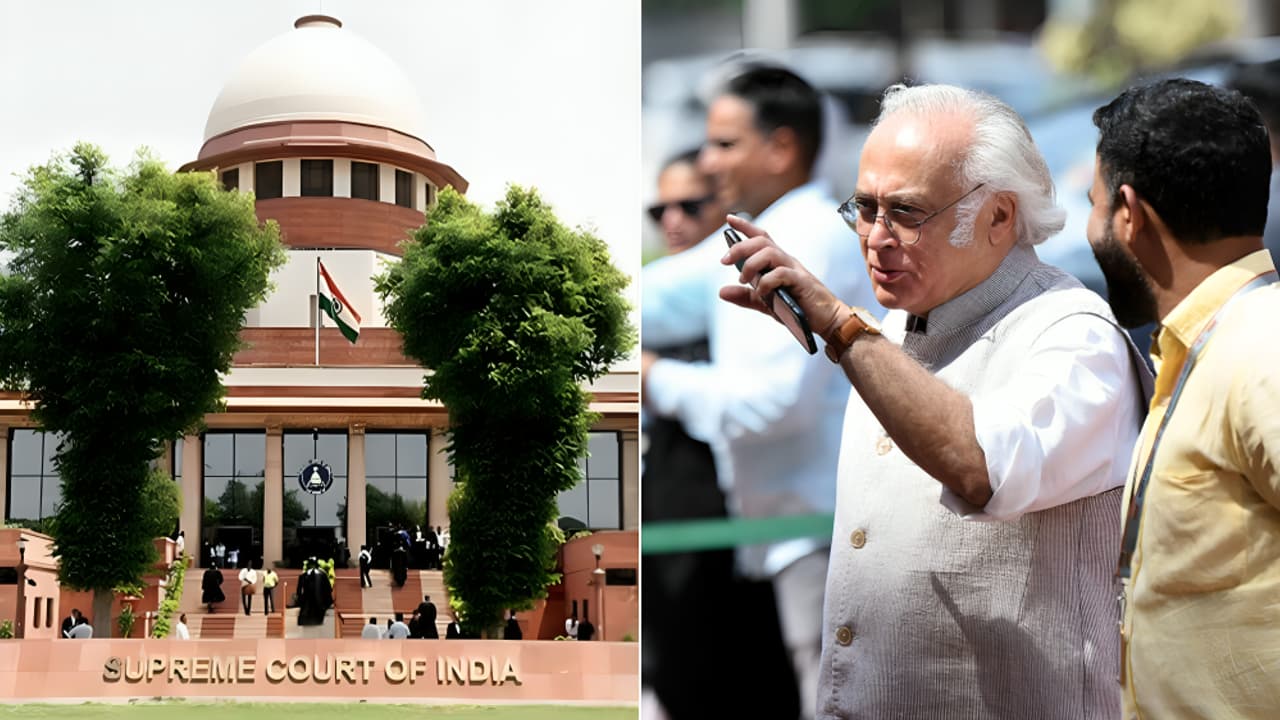The Supreme Court stayed key parts of the Waqf (Amendment) Act, 2025, citing risks of arbitrary power. Jairam Ramesh praised the decision as a victory for justice and constitutional values, while Rijiju supported it.
Senior Congress leader Jairam Ramesh welcomed the Supreme Court’s interim order staying key provisions of the Waqf (Amendment) Act, 2025, calling it a major victory for constitutional values of justice, equality and fraternity. He said the order helps undo the ‘mischievous intentions’ behind the law, which aimed to inflame communal tensions and create arbitrary structures. Ramesh also criticized the BJP-led government for targeting religious harmony for political gain.
Supreme Court stays key provisions of the Waqf (Amendment) Act, 2025
On Monday, the Supreme Court of India issued an important interim order staying some sections of the Waqf (Amendment) Act, 2025. This decision came after hearing petitions that challenged the constitutional validity of the new law. The court did not stay the entire Act but paused certain parts until rules are created to prevent misuse.
The top court said that the sections in question could lead to arbitrary power and were unfair without proper rules. The ruling especially focused on two provisions: one that required a person to be a practicing Muslim for five years to create a Waqf, and another allowing the Collector to decide disputes about Waqf property and government property. The court said the Collector should not have the power to decide such disputes because it could violate the separation of powers in the government.
Jairam Ramesh welcomes Supreme Court’s decision
Senior Congress leader Jairam Ramesh praised the Supreme Court’s order. He said it was a major victory for the constitutional values of justice, equality and fraternity. In a post on X, he explained that the decision was not just a win for those who opposed the law, but also for the members of the Joint Parliamentary Committee who disagreed with the Act.
Scroll to load tweet…
Ramesh said the law had dangerous intentions. He argued that it was designed to create an administrative system where anyone could challenge the ownership of Waqf property in front of the Collector. This, according to him, would keep the issue in uncertainty and fuel religious disputes.
He strongly criticized the BJP-led Union government, saying, “The intention behind these sections was always apparent – to keep the voter base inflamed and create an administrative structure to indulge those seeking to foment religious disputes.”
Congress leader Dr Syed Naseer Hussain hails SC ruling
Congress’s Dr. Syed Naseer Hussain welcomed the Supreme Court’s interim order staying key provisions of the Waqf (Amendment) Act, 2025. He thanked the Court for protecting minority rights and criticized the government for introducing unconstitutional clauses, including giving the Collector unrestrained powers and demanding proof of being Muslim for 5 years. He said the ruling vindicates Congress’ stand on transparent, fair reforms, and reiterated the party’s commitment to secular values and minority rights.
Scroll to load tweet…
Union Minister Kiren Rijiju supports the order
Union Minister for Minority Affairs Kiren Rijiju also welcomed the Supreme Court’s interim order. He said the decision showed trust in Indian institutions and was a positive sign for parliamentary democracy.
Rijiju told reporters in Mumbai, “The government’s solicitor general explained all the government’s views clearly during the hearing. Some people unnecessarily challenged the law in the Supreme Court. The Supreme Court has now confirmed that only certain parts can be challenged, not the authority of Parliament.”
BJP leader Mukhtar Abbas Naqvi on SC order
BJP leader Mukhtar Abbas Naqvi supported the government’s stand. He said the Supreme Court had the right to check any law passed by Parliament. Naqvi accused opposition parties of protesting the Waqf Amendment Act because they wanted a “license to loot.”
He said, “The decision to improve the Waqf system was made to protect faith and bring order. Sadly, the corrupt lobby wants to keep the system untouched so they can continue their wrong practices. They try to create unrest and confusion about the Act.”
What is the Waqf (Amendment) Act, 2025?
The Waqf (Amendment) Act, 2025 was introduced in the Indian Parliament and passed in both the Lok Sabha and Rajya Sabha on April 2 and 3, 2025, respectively. The Act received the President’s approval on April 5, 2025 and became a law.
The Act aims to reform the management and protection of Waqf properties in India. Waqf properties are those donated for religious or charitable purposes under Islamic law. The government says the law is needed to prevent misuse and to better manage Waqf assets.
However, several opposition parties and experts argued that some sections of the law were unfair and could harm citizens’ rights. They raised concerns that it would create an unfair system where government officials could wrongly interfere in Waqf property matters.
Supreme Court’s interim order
The Supreme Court decided to stay two main provisions of the Waqf Amendment Act:
- The rule that a person must be a practicing Muslim for five years to create a Waqf.
- The provision that allows the Collector to decide disputes regarding Waqf property and government property.
- The court said that without clear rules or a mechanism to decide who qualifies as a practicing Muslim, this provision could lead to arbitrary decisions. The order will remain in place until clear rules are made.
The Supreme Court’s order is temporary. The final decision will come after the petitions are fully heard. Meanwhile, the government, Opposition and other stakeholders will continue to debate and provide their arguments.
